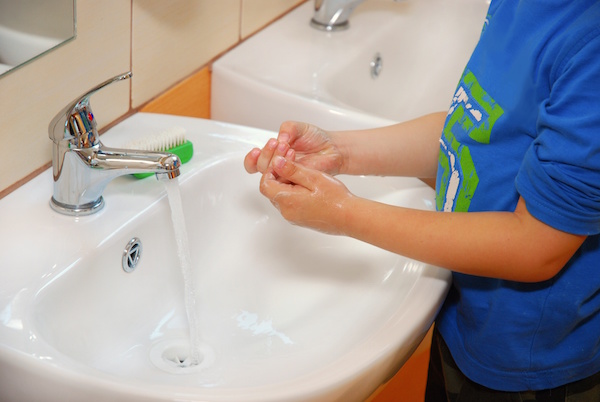
MONDAY, March 14 (HealthDay News) — Depressed dads are more likely to shortchange their children and use physical punishment, even on tots who are still crawling, new research suggests.
A study involving fathers of 1-year-olds found they were more likely to spank and less likely to read to their youngsters than mentally healthy fathers. The finding adds more weight to the emerging awareness of “postpartum depression” among new fathers.
“Depressive symptoms in dads may affect the way they interact with their child in negative ways,” said Dr. R. Neal Davis, a pediatrician at Intermountain Healthcare in Murray, Utah.
For the study, published online March 14 in the journal Pediatrics, Davis and his colleagues evaluated data supplied by 1,746 fathers of 1-year-olds who participated in the Fragile Families and Child Wellbeing Study. This long-running study is following nearly 5,000 children born in large U.S. cities between 1998 and 2000.
Overall, 7 percent of the dads had had a depressive episode within the previous year, which is about typical of the general population, said Davis, who conducted the analysis while doing research in pediatrics at the University of Michigan in Ann Arbor.
The father, who lived with their children all or most of the time, were asked about four behaviors, both positive and negative.
The researchers found that the depressed dads were nearly four times as likely to report spanking their child in the past month, with 41 percent of depressed dads and 13 percent of non-depressed dads doing so.
Depressed fathers were also less than half as likely to report reading stories to their children three or more times a week compared to non-depressed dads.
There were no differences in the fathers’ reporting of playing games or singing songs, whether depressed or not.
Davis stresses that the study found an association but not a cause and effect relationship between depression and paternal behavior. Irritability often accompanies depression, which could explain the greater incidence of spanking, he said.
The American Academy of Pediatrics opposes striking a child for any reason, and says spanking can leads to agitation and increased aggression in preschool and school children.
Urging parents to use time-outs or other means of discipline, the AAP warns that spanking in children under 18 months of age increases the risk of injuring them. It also cautions that in older children, frequent spanking is associated with an increased risk of violence.
Moreover, Davis said that a child of 1 year is “developmentally unable to connect the dots… They can’t connect the spanking to whatever behavior they have done,” he said.
The research was supported by a grant from the Eunice Kennedy Shriver National Institute of Child Health and Human Development.
The significance of depression in new dads has gained attention in recent years, as experts recognize a father’s mental health can affect child development and well-being. The incidence of parental depression seems highest during the first year of parenting, the study says.
Awareness of paternal depression is at about the same level now as that of maternal depression 15 years ago, said Dr. Craig Garfield, co-author of a commentary on the study in the same journal issue.
“There’s pretty good data in the U.S. and the world that 5 to 10 percent of dads will have depression,” added Garfield, an assistant professor of pediatrics at Northwestern University’s Feinberg School of Medicine and assistant professor of pediatrics at NorthShore University HealthSystem, Evanston, Ill.
He and his colleagues hope more pediatricians will address the possibility of depression during well-child visits, which fathers increasingly attend. (Seventy-seven percent of the dads studied reported talking to their child’s doctor the previous year.) During those visits, Garfield talks to both mothers and fathers about being alert to the possibility of depression in the other parent.
Symptoms of depression vary but can include deep sadness, weight loss or gain, difficulty concentrating, frequent fatigue and insomnia, reduced sex drive, chronic irritability and frustration, feelings of guilt or worthlessness and loss of interest in activities once thought pleasurable. Other possible symptoms include thoughts of death or unexplained physical problems, such as headaches or backaches.
If the symptoms continue for more than two weeks, Garfield urges parents to seek medical help.
More information
To learn more about the ills of spanking, visit the American Academy of Pediatrics.

